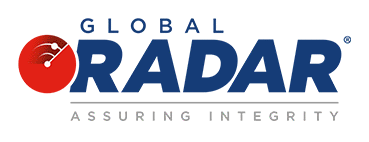Weekly Roundup
JPMorgan Extends Banking Services to Crypto-Giants
In an unprecedented move, JPMorgan Chase & Co. recently moved to extend banking services to two of the larger names in the cryptocurrency sphere, Coinbase Inc. and Gemini Trust Co. The Wall Street Journal writes that the bank “is primarily providing cash-management services to the firms and handling dollar-based transactions for the exchanges’ U.S.-based customers, according to the people. It will process wire transfers, and deposits and withdrawals through the Automated Clearing House network, an electronic funds-transfer system.”2 Given that majority of customers of these exchanges use traditional banking accounts to back their crypto-portfolios, having JPMorgan open to serving the role of reputable payments processor seems an ideal match for the crypto-firms.
The WSJ article notes however that the vetting process for Coinbase and Gemini was far from simple. A major factor in the partnership with these exchanges proved to be the fact that multiple parties in the United States regulate them both. Writer Paul Vigna notes, “Gemini obtained a trust charter from the New York State Department of Financial Services in 2015. Coinbase is registered as a money services business with Financial Crimes Enforcement Network, or FinCEN, and also has a specialized license for crypto businesses, called the BitLicense, from the DFS,”2 while both entities are licensed as money transmitters in a number of U.S. states. Clearly JPMorgan felt the lessened risk of opening their door to these platforms paled in comparison to the potential reward, with countless other digital currencies & exchanges likely to benefit heavily from these developments in the years to come.
Morgan Stanley Levied $5 Million Fine by SEC
Last Tuesday, the Securities and Exchange Commission (SEC) announced that the brokerage arm of multinational investment bank Morgan Stanley will pay a $5 million penalty in order to settle claims that it allegedly mislead a portion of its client base while charging hidden trade fees. The wrongdoing centered on the marketing of “wrap-fee programs”, which covered high-level investment advice and brokerage services at a flat cost. This essentially gave Morgan Stanley customers the false belief that they would not incur trade execution fees if they were to register for these services. However, the SEC discovered that between 2012 and 2017, the group’s Smith Barney segment managers ultimately “directed some clients’ trades to third-party dealers for execution and charged the customers the resulting fees.”3 Investment advisers are obligated to fully inform their clients about the fees that clients will pay in exchange for services,” Melissa Hodgman, associate director at the SEC’s Division of Enforcement, stated in the SEC press release.3
Ultimately the banking conglomerate failed to admit nor deny the financial regulator’s claims, settling with the SEC for the aforementioned $5 million. These funds will reportedly establish a reserve that will be used to pay back individuals affected by the hidden fee ploy.
EU To Take Legal Action Against Luxembourg Over AML, Tax Avoidance Laws
The European Commission began the initial steps of stepping up its scrutiny and enforcement of proper anti-money laundering (AML) and tax avoidance laws that were required to be implemented by each and every EU member state. In regards to Luxembourg, Reuters writes that “new EU rules to step up scrutiny of financial assets controlled by politicians and companies’ owners were approved in May 2018 in an effort to clamp down on money laundering, but Luxembourg is among EU states that are not yet fully applying them.”1 According to reports, Luxembourg and several other members of the EU have failed to implement new AML rules to date, potentially leaving the western European country a prime target of large-scale financial penalties should it not comply with these enhancements in a timely manner.
It is common knowledge across the financial sphere that a significant proportion of Luxembourg’s foreign direct investment (FDI) comes from shell companies established by foreign nationals and possibly criminal organizations to conceal their assets and launder funds – this due in large part to tax rules that work heavily in favor of these entities. Given that the country’s regulations have essentially allowed firms “unlimited deductibility of interest from tax bills” for some time now, in a separate action the European Commission also called on the national government to make specific changes to a rule that had allowed companies to cut their tax burden beyond what is permitted under EU legislation, as this often leads to reduced tax revenues in other EU countries.1
Citations
- Guarascio, Francesco. “EU Starts Legal Actions against Luxembourg over Money Laundering, Tax Avoidance.” Reuters, Thomson Reuters, 14 May 2020.
- Vigna, Paul. “JPMorgan Extends Banking Services to Bitcoin Exchanges.”The Wall Street Journal, Dow Jones & Company, 12 May 2020.
- Winck, Ben. “Morgan Stanley Fined $5 Million by the SEC over Trading Fees | Markets Insider.” Markets Insider, Business Insider, 12 May 2020.

